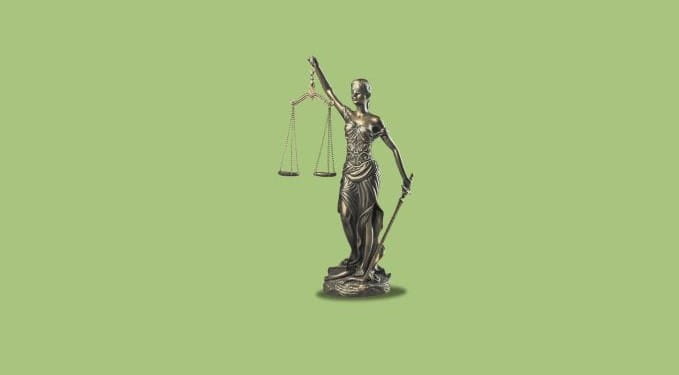Key substantive differences between the 2025 edition of ICAEW's Code of Ethics, and the 2024 edition of IESBA's code upon which it is based.
ICAEW’s 2025 Code of Ethics is based on the Code of Ethics for Professional Accountants of the International Ethics Standards Board for Accountants (IESBA) published by the International Federation of Accountants (IFAC) in 2024 and is used with permission of IFAC.
The IESBA Code has adopted the principles-based approach pioneered by ICAEW.
As a member of IFAC, ICAEW is obliged to adopt the IESBA Code in full and is not permitted to change the provisions of that Code. However, ICAEW is able to include additional requirements, where it considers them to be relevant and appropriate for its members.
These additional ICAEW requirements and guidance (indicated in the ICAEW 2025 Code by the use of blue boxes) are included in the ICAEW 2025 Code on areas that have been found to be of particular relevance to ICAEW members in the past or which reflect the particular environment in the UK.
Historically there has been a substantial amount of ICAEW-specific add-on material but over recent years there has been convergence between the IESBA and ICAEW Codes, which means that there is not a significant amount of additional content that is ICAEW-specific.
The main areas in which additional ICAEW-specific material has been added to the ICAEW 2025 Code are as follows:
100.1.A1: A professional accountant’s responsibility is not exclusively to satisfy the needs of an individual client or employing organisation. Therefore, the Code contains requirements and application material to enable professional accountants to meet their responsibility to act in the public interest”.
Fundamental principle of confidentiality
The 2025 ICAEW Code contains the following additional paragraphs in section 114 in relation to the fundamental principle of confidentiality:
114.0 A1: The principle of confidentiality is not only to keep information confidential, but also to take all reasonable steps to preserve confidentiality. Whether information is confidential or not will depend on its nature. A safe and proper approach for professional accountants to adopt is to assume that all unpublished information about a client’s or employer’s affairs, however gained, is confidential. Some clients or employers may regard the mere fact of their relationship with a professional accountant as being confidential.
114.2 A1: This requirement extends not only to clients, past and present, but also to third parties from or about whom information has been received in confidence. The principle of confidentiality clearly does not prevent an employee from using the skills acquired while working with a former employer in undertaking a new role with a different organisation. It would not be appropriate for professional accountants to either use or appear to use special knowledge which could only have been acquired with access to confidential information. It is a matter of judgment as to the dividing line which separates experience gained from special knowledge acquired.
Fundamental principle of professional behaviour
The 2025 ICAEW Code contains the following additional paragraphs in section 115 in relation to the fundamental principle of professional behaviour:
115.1 A2: A reasonable and informed third party would expect that a professional accountant, in their professional life, treats others fairly, with respect and dignity and, for example, does not bully, harass, victimise or unfairly discriminate against others.
Please note: This is a change from the wording used in the 2019/2020 ICAEW code.
The wording above was inserted into the 2025 code following extensive consultation by ICAEW in 2024.
R115.3: Professional accountants shall never promote or seek to promote their services, or the services of other professional accountants, in such a way, or to such an extent, as to amount to harassment of a potential client or employer.
Applying the conceptual framework
The 2025 ICAEW Code contains the following additional sentence in section 300.3, in relation to the definition of “professional accountant” for the purposes of that part of the Code:
300.3: In this Part, the term “professional accountant” refers to individual professional accountants in public practice and their firms. It also applies to professional accountants in business when providing professional services.
Conflicts of interest
The 2025 ICAEW Code contains the following additional sentence in section 310.14 in relation to termination:
R310.14: Where a professional accountant is required for any reason to disengage from the existing client, the professional accountant shall do so as speedily as practicable having regard to the interest of the client.
Professional handover
The section on professional handover has a substantive amount of additional material for ICAEW members. Much of this relates to the anti-money laundering requirements for members practising in the UK. The 2025 ICAEW Code contains the following additional paragraphs:
R320.5: Having been asked to accept an appointment, the professional accountant shall at least seek to contact the existing or predecessor accountant, irrespective of whether the existing or predecessor accountant works in public practice or not. This includes circumstances where the professional accountant is asked to undertake work which is relevant to the work of an ongoing existing accountant unless the client provides acceptable reasons why the existing accountant cannot be informed.
320.5A2: Care must be taken when communicating all relevant facts to a proposed accountant in situations where the existing or predecessor accountant knows or suspects that their client is involved in money laundering or a terrorist activity. It is important that: - The proposed accountant does not specifically enquire whether the existing accountant has reported suspicions of money laundering or terrorism. Such questions place the existing accountant in a difficult position and are likely not to be answered. - The proposed accountant does not ask the existing accountant whether client identification or ‘knowing your client’ procedures have been carried out under anti-money laundering legislation. The proposed accountant has responsibility for obtaining information for client identification and ‘knowing your client’ and this cannot be delegated to the existing accountant.
R320.6A: In circumstances where the enquiries referred to above are not answered, the proposed accountant shall write to the existing accountant by recorded delivery service stating an intention to accept the engagement in the absence of a reply within a specific and reasonable period.
320.6A1: The proposed accountant is entitled to assume that the existing accountant’s silence implies there was no adverse comment to be made, although this does not obviate the requirement in R320.6 to take other reasonable steps.
R320.7A: If the client fails or refuses to grant the existing accountant permission to discuss the client’s affairs with the proposed accountant, the existing accountant shall report this fact to the proposed accountant who shall consider carefully the reason for such failure or refusal when determining whether or not to accept nomination/appointment.
R320.7B: If the existing accountant has made one or more suspicious activity reports relating to money laundering or terrorism, the existing accountant shall not disclose that fact to the prospective accountant, or make other disclosures that could amount to tipping off.
320.7 A3: Disclosure of money laundering or terrorist suspicion reporting by the existing accountant to the proposed accountant needs to be avoided because this information may be discussed with the client or former client.
R320.7C: An existing accountant shall deal promptly with any reasonable request for the transfer of records and may have the right of particular lien if there are unpaid fees.
R320.7D: The prospective accountant often asks the existing accountant for information as to the client’s affairs. If the client is unable to provide the information and lack thereof might prejudice the client’s interests, such information shall be promptly given. In such circumstances, no charge shall normally be made unless there is good reason to the contrary.
320.7 A4 An example of a reason to make a charge would be that a significant amount of work is involved.
Second opinions
The 2025 ICAEW Code contains the following additional paragraph in S321 relation to second opinions:
R321.3: A professional accountant shall, when providing a second opinion:
- (a) confirm oral opinions in writing as soon as practicable after giving the opinion; and
- (b) if asked for a general opinion relative to a hypothetical situation, ensure that the recipient of the opinion understands that it has been given in the context of that particular hypothetical situation only.
Fees and remuneration (including commission)
Agencies and referrals S331
The sections in the Code that deal with fees and remuneration and agencies and referrals are extensive, and a large part of this content is ICAEW add-on material. UK fiduciary law means that there are stricter requirements on ICAEW members in these areas than those imposed by the international code. Members are advised to review these sections in full.
Part 4/section 400 onwards
ICAEW’s Code includes all IESBA code content on audit independence from section 400 onwards. While the ICAEW Code does not add to this material, the application of Part 4 of the Code depends on whether the professional accountant is undertaking an audit under UK ISAs or a public interest assurance engagement – if so the UK FRC’s Ethical Standard applies for independence purposes.
Part 10 insolvency
Insolvency practitioners in the UK have to comply with the Insolvency Code of Ethics. Part 10 of the ICAEW Code comprises the Insolvency Code of Ethics which is set out in a separate document.
Glossary
The 2025 ICAEW Code contains a number of additional terms and definitions which are relevant to ICAEW and the UK context, including definition of “member” and related terms. The ICAEW Code also defines “Partner” or “Principal” as follows:
References to a partner or principal of a firm include the following:
- a partner/principal;
- a sole-practitioner;
- a director of a corporate firm;
- a member of a limited liability partnership; and
- an employee of a corporate firm who is:
- a responsible individual within the meaning of the Audit Regulations;
- a licensed insolvency practitioner; or
- defined as such in circumstances determined by Council.
ICAEW Code of Ethics 2025
PDF (3,876kb)
The 2025 edition of the Code comes into effect on 1 July.
DownloadGuidance and support


